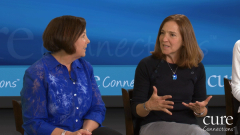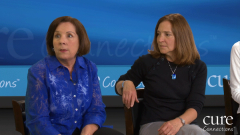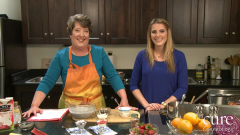
Emphasizing the Importance of Food Safety During Cancer Care

Heather Ann Yonker, emphasizes the importance of food safety practices for patients with cancer, particularly those with weakened immune systems.
Episodes in this series

Heather Ann Yonker, outpatient stem cell transplant dietitian at John Theurer Cancer Center, in Hackensack, New Jersey, gave CURE a detailed overview of food safety practices, emphasizing their importance for patients with cancer, particularly those undergoing treatments that may weaken the immune system.
“Food safety is everyone's business, and we all need to consider this in our daily practice," she emphasized.
To begin, Yonker notes that the U.S. food supply is generally safe, yet foodborne illnesses caused by bacteria such as Salmonella or Escherichia coli (E. coli) can still occur. These illnesses may produce symptoms like nausea, vomiting, diarrhea, abdominal pain, fever, headache, and body aches; however, it is important to know that these can resemble side effects from medications or cancer treatments, complicating diagnoses.
“The four basic, simple rules for handling food properly: cleaning, separating, cooking, and chilling. The first one I want to touch on is cleaning," she advises.
On cleaning, she stresses thorough handwashing for at least 20 seconds, particularly as well as cleaning cutting boards, utensils, and countertops with hot, soapy water or disinfecting wipes. She also recommends using separate sponges or disposable paper towels to prevent cross-contamination.
Separation involves keeping raw and cooked foods distinct. Storing raw poultry at the bottom of the refrigerator in containers can prevent juices from contaminating other foods, which is important. Thawing and marinating should always occur in the refrigerator, and meat should not be rinsed to avoid spreading bacteria. Fruits and vegetables should be washed under running water using a vegetable brush or thick cloth to remove dirt and bacteria, with commercial fruit and vegetable washes as an optional aid.
Notably, Yonker says that using dish soap or detergents on produce is unnecessary and potentially unsafe, as plain running water is sufficient.
Overall, she concludes by stating that adherence to these basic food safety measures — cleaning, separating, cooking, and chilling — can significantly reduce the risk of foodborne illness and support the health of patients with cancer.
For more news on cancer updates, research and education,












